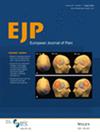The Role of Negative Affect and Experiential Avoidance in Postsurgical Pain and Fatigue Among Norwegian Women With Breast Cancer
Abstract
Background
Women undergoing breast cancer surgery frequently experience postsurgical pain and fatigue, which reduces their quality of life. Although psychological factors have been shown to play a role in predicting postsurgical outcomes, the subacute recovery phase often remains underexplored. In this secondary analysis of data from a randomised controlled trial, we sought to investigate the predictive role of negative affect and experiential avoidance on postsurgical symptoms during both acute and subacute recovery.
Methods
From the initial sample, 189 women who met the inclusion criteria completed the Acceptance and Action Questionnaire (AAQ-II) before surgery to assess levels of negative affect and experiential avoidance. Postsurgical pain and fatigue were measured at hospital discharge and again 3–4 weeks later using a 100 mm Visual Analogue Scale (VAS).
Results
Bivariate linear regression analyses revealed that higher presurgical negative affect and experiential avoidance significantly predicted increased levels of all acute and subacute postsurgical symptoms (all p ≤ 0.027). After adjusting for covariates in multivariate regression analyses, the AAQ-II remained a predictor of acute pain unpleasantness (p = 0.011) and fatigue (p = 0.048), although the effect estimates were modest.
Conclusions
These findings underscore the need to take psychological factors into account in treatment planning for acute postsurgical symptoms in order to develop more individualised approaches to optimise recovery for women undergoing breast cancer surgery.
Significance
Women with higher levels of negative affect and experiential avoidance before undergoing breast cancer surgery appear to be at greater risk for experiencing heightened acute postsurgical pain and fatigue. The identification of these psychological predictors can help clinicians recognise individuals at risk for severe postoperative symptoms and develop targeted preventive and curative interventions to mitigate these symptoms and prevent them from becoming chronic.

 求助内容:
求助内容: 应助结果提醒方式:
应助结果提醒方式:


